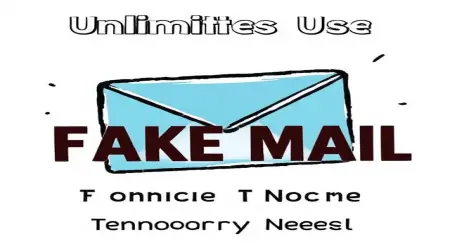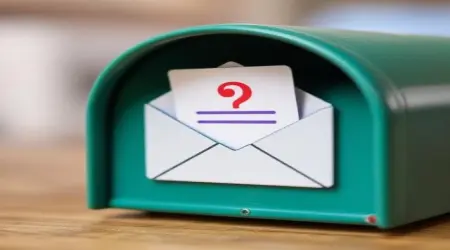

Unlimited Use Fake Mail for Temporary Needs
Unlimited use fake mail services have become an essential part of maintaining online privacy, especially in a world where digital footprints are closely monitored. These temporary email solutions offer users the ability to generate disposable email addresses instantly, which can be used for online registrations, accessing downloadable content, or subscribing to newsletters without compromising a personal or business inbox. The appeal lies in their simplicity, efficiency, and anonymity, making them ideal tools for managing online interactions securely. Whether someone is looking to avoid spam, protect sensitive information, or simply test a platform, unlimited use fake mail provides the flexibility to do so without restriction.
The rise of online services, e-commerce platforms, and digital marketing has led to a surge in the requirement for email verification. From signing up on forums to unlocking free trials, users are often compelled to provide their email addresses, risking their inboxes to spam or phishing attempts. Unlimited use fake mail offers a solution that allows individuals to bypass this inconvenience. These emails function exactly like regular addresses, but they expire after a set time or are removed once their purpose is fulfilled. The "unlimited use" part means users can create and use as many as needed, without limits on frequency or duration, depending on the service provider.
One of the standout features of fake mail is its ability to protect users from email harvesting bots. Many websites secretly log email addresses and share them with third parties. This leads to unwanted marketing emails, potential data leaks, and even identity theft. Fake mail services help users create a shield between them and these invasive systems. By using a disposable email address, users ensure that their primary accounts stay untouched. The flexibility of generating multiple addresses without registration also makes these tools particularly user-friendly.
People also use fake mail services to manage multiple accounts on platforms that restrict sign-ups per email. Gamers, app testers, software developers, and digital marketers frequently need access to multiple accounts for testing or marketing purposes. Unlimited fake mail allows them to maintain dozens, even hundreds, of accounts without needing to use their personal information. This becomes especially useful for beta testing apps, managing surveys, or even conducting market research anonymously.
The security aspect of using fake mail is another significant advantage. Since these services are not tied to a personal identity, the risk of hacking or data leakage is minimized. If a platform where a disposable email is used gets compromised, the user’s personal email remains unaffected. Moreover, since many of these fake mail providers automatically delete messages after a few hours or days, the information stored is short-lived and reduces long-term exposure.
Temporary email addresses are also widely used in regions where internet censorship or data surveillance is high. Users prefer to stay anonymous while accessing restricted content or signing up for services that might be monitored. Unlimited fake mail usage offers a veil of protection in these scenarios, giving freedom without fear. Since these services don't require registration, users can stay completely anonymous, leaving no trace of identity behind.
The user interface of most fake mail websites is straightforward. Upon visiting, a temporary inbox is automatically generated. Users can view incoming emails in real-time, copy the address, refresh the inbox, or delete it when done. Some platforms even allow custom usernames or domains, providing more control and reliability. Advanced providers support attachments, HTML messages, and sometimes even forwarding options, bridging the gap between convenience and privacy.
Many developers integrate fake mail APIs into their testing environments. Instead of manually generating test data, fake mail APIs help simulate real-user scenarios automatically. This can speed up testing for registration flows, password recovery features, and email-based authentication. Such use cases show how these services extend beyond privacy and into development workflows, offering utility in professional contexts as well.
Unlimited fake mail solutions are available both as websites and browser extensions. Some also have mobile apps for on-the-go access. These tools are especially helpful for users who frequently register on websites or need multiple email addresses for temporary tasks. Whether it's joining a webinar, accessing gated content, or verifying a social media account, these tools are just a few clicks away.
One key concern users may have is whether fake mail services are legal. In most regions, using disposable emails for lawful purposes is completely legal. However, using them to conduct fraudulent activity or violate terms of service may lead to bans or other consequences. It's important to use these tools responsibly and within the bounds of digital ethics and platform guidelines.
Unlimited usage means users aren't restricted to one email address or inbox per day. This is beneficial for users who are running campaigns, signing up for multiple platforms, or conducting research that requires access to a variety of services. With fake mail, users don't have to wait or worry about reusing addresses. They can instantly create a new one, use it, discard it, and repeat the process whenever necessary.
Educational institutions also benefit from fake mail when teaching cybersecurity or demonstrating how phishing attacks work. Students can interact with simulations without using their real accounts, reducing risk. The anonymity provided helps in creating a secure sandbox environment for learning and experimentation.
Since spam filters are increasingly strict on free public email providers like Gmail and Yahoo, using a temporary email to test email delivery systems has become popular. Marketers use fake mail to test how messages render in different inboxes, helping optimize campaigns for better engagement and deliverability. This is yet another creative way fake mail services are being leveraged in professional environments.
Data minimization is another concept that aligns well with the use of fake mail. When platforms demand email addresses, users can provide a fake one to avoid giving away personal information unnecessarily. This aligns with digital hygiene practices, ensuring that minimal data is shared online, which is increasingly important in a world dominated by surveillance capitalism.
Unlimited fake mail can also support users in managing online identities. People often prefer separating their personal, work, and subscription emails. Fake mail helps in compartmentalizing this without the need for maintaining multiple real accounts. This practice reduces inbox clutter, improves focus, and enhances productivity.
With the surge of online giveaways, discount offers, and promotions that require an email address, fake mail services provide a clutter-free experience. Instead of using a primary inbox and receiving countless follow-up emails, users can enter a fake email and discard it later. This keeps their real inbox clean and organized.
Another noteworthy use is in forums and communities that require an email for participation but don't offer value to warrant real email access. Temporary emails can be used to participate without long-term commitment. This is helpful in casual engagements where users want to avoid long-term communication.
Unlimited use fake mail also empowers whistleblowers and journalists. When anonymity is crucial for reporting sensitive stories or providing tips, disposable emails serve as a vital layer of protection. This anonymity ensures the safety of the sender and allows important information to be shared without risk.
Even in online dating, where privacy is a concern, fake mail can be used during early interactions. Until trust is built, users can communicate using temporary emails, safeguarding their real contact information from potential misuse or harassment.
For freelancers and gig workers, using fake mail can separate client accounts, test services, or register for short-term tools without exposing their main email address. It acts as a professional shield, preventing long-term promotional spam from piling up in their work inbox.
Some services also offer premium fake mail solutions with extended storage, custom domains, and encryption. While the basic versions offer unlimited use and are free, paid options provide additional privacy layers and professional features. These are suitable for businesses, marketers, and tech-savvy users who need more control over their temporary communication.
The best fake mail platforms ensure that messages are securely handled and removed after expiration. They also employ anti-bot measures, SSL encryption, and GDPR compliance for user peace of mind. These measures make fake mail not only convenient but also trustworthy for various online tasks.
Unlimited fake mail has become an integral tool for modern internet users. From avoiding spam to conducting ethical testing and maintaining online privacy, it provides immense flexibility and control. As the digital world becomes more invasive, tools like these are essential in managing exposure and protecting personal information. Whether you're an individual, a developer, a researcher, or a privacy advocate, unlimited use fake mail offers a reliable, simple, and safe way to engage with the internet.


